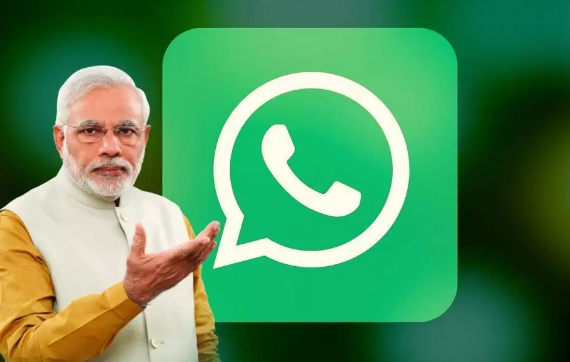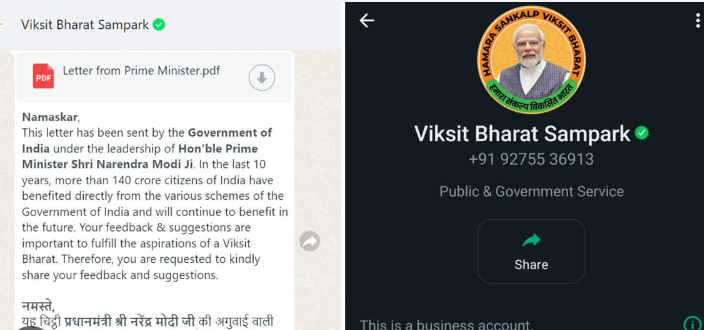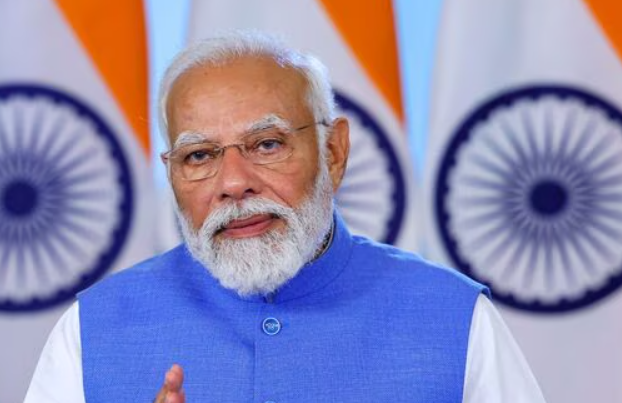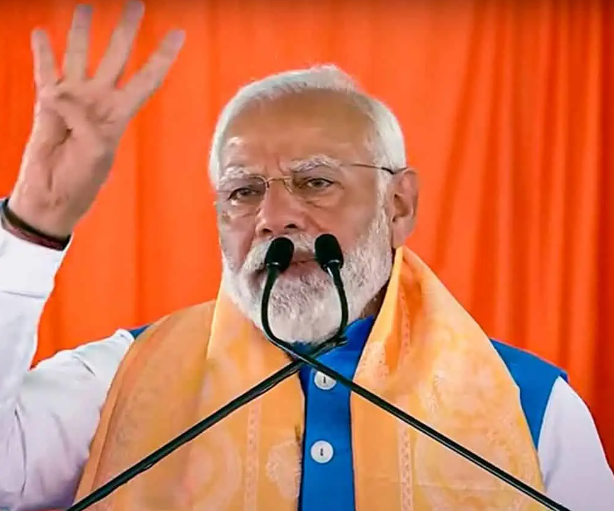Indian PM Modi WhatsApp Outreach in UAE
Over the weekend, a surprising event unfolded for Indian expatriates and various nationalities residing in the UAE as they found a WhatsApp message on their smartphones originating from an Indian number. The message, accompanied by a letter from Prime Minister Narendra Modi in the form of a PDF attachment, sought feedback and suggestions on the Indian government’s schemes and initiatives. This unexpected outreach raised eyebrows and sparked a range of reactions among recipients, leading to concerns over data privacy and accusations of political misuse.

Prime Minister Modi‘s letter, issued on the eve of the announcement of general elections, emphasized the importance of receiving ideas and support in building a prosperous India. While some recipients viewed the unsolicited message as a pleasant surprise, others, particularly non-Indians, questioned its relevance and expressed bewilderment. Pakistani journalist Asma Zain and Dubai resident Fahad Siddiqui were among those puzzled by the unexpected communication, raising questions about their involvement and the source of their contact information.
Even British residents in Dubai, like one individual who recently visited India for work, found themselves recipients of the message, further complicating the matter. The broad spectrum of recipients, including Emiratis, added to the confusion and raised concerns about the privacy of their personal data.
Prime Minister Modi’s ambitious goals for the upcoming elections, particularly the BJP’s promise of a developed India by 2047 under the Viksit Bharat agenda, were central to the outreach effort. Addressing recipients as “my dear family members,” the Prime Minister sought to emphasize a decade-long partnership with citizens and the transformative impact of government schemes. However, opposition parties criticized these efforts, alleging political propaganda and misuse of government resources for electoral gains.
The Kerala Congress, in particular, denounced the attached PDF as campaign material and accused Prime Minister Modi of breaching privacy laws. Concerns over data privacy were further highlighted by Congress lawmaker Shashi Tharoor, who shared screenshots of a LinkedIn post by UAE-based consultant Anthony J Permal. Permal’s post questioned the ethicality of the government obtaining private numbers and indiscriminately spamming non-Indians.
This incident comes after BJP president J P Nadda’s launch of ‘Viksit Bharat Modi ki guarantee’ video vans in February, aimed at soliciting suggestions from citizens nationwide for the party’s manifesto. Such outreach efforts, while intended to engage citizens and gather feedback, have raised significant questions regarding privacy, ethical conduct, and the potential misuse of resources for political purposes.
As the debate continues, it underscores the importance of respecting privacy laws, maintaining ethical standards in political outreach, and ensuring transparent communication with citizens, both domestically and abroad. The incident serves as a reminder of the evolving challenges surrounding digital communication and the need for responsible governance in the digital age.
Furthermore, the incident underscores the growing significance of digital communication platforms in political outreach and engagement. With the prevalence of social media and instant messaging apps like WhatsApp, political leaders have unprecedented access to a vast audience, transcending geographical boundaries. However, this access also brings forth ethical considerations regarding privacy, consent, and the responsible use of data.
In an era where data privacy is a pressing concern globally, the unauthorized dissemination of personal information raises red flags and erodes trust in government institutions. The apparent breach of privacy laws in this instance has not only stirred controversy but also prompted calls for stricter regulations to safeguard individuals’ personal data from exploitation for political purposes.
Moreover, the incident highlights the challenges of maintaining transparency and accountability in political communication, particularly in cross-border contexts. As nations become increasingly interconnected, political campaigns and outreach efforts extend beyond domestic boundaries, necessitating a nuanced understanding of international regulations and cultural sensitivities.
Stay up to date with every latest news-click here



